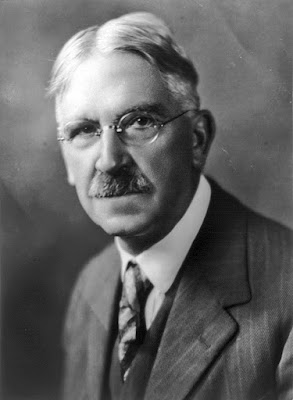William James and Charles Sanders Peirce are two of the most influential philosophers to come out of the United States. They made contributions to a field called “philosophy of science,” which studies the proper foundation of scientific knowledge. Each of them had things to say about it, but their differences would later turn out to be quite substantial. Nonetheless, there is also significant overlap between them, which may be why they are still covered together in this audiobook. They were among the founders of a school called “pragmatism,” which was born in America in the 1870’s. Its influence would continue well beyond the deaths of these two remarkable men, who died within four years of each other in the early twentieth century.
The first half of this audiobook is focused mostly on Charles Sanders Peirce. His last name is pronounced “purse.” In this audiobook’s title, they generally refer to him simply as “Charles Peirce,” but they use his full name (Charles Sanders Peirce) a number of times within the audiobook itself. This is to distinguish him from other famous persons called “Charles Peirce,” of whom there are a few. Thus, Charles Sanders Peirce was active in the philosophy of science. He believed that we should refrain from forming conclusions too quickly. He believed that we should only form conclusions when we have sufficient evidence to do so. He had many valid points to make in this regard. But he also believed that science could solve virtually any of humanity’s problems, which is a bit of an overstatement. This borders on the doctrine later known as “logical positivism,” which posits that logic and science are the answer to everything. Pierce’s views led him to be somewhat hostile to religion, because he perceived it to be in conflict with science – a common (but not quite accurate) view.
Charles Sanders Peirce
In contrast, William James believed in both science and religion. William James is the focus of most of the last half of this audiobook. William James believed that science was valuable, and believed that it could solve many of humanity’s problems. But he also believed that there were limits to what science can do for us. It cannot answer questions of value, for example, which are more subjective. No scientific test can tell us that Coke tastes better than Pepsi (for anyone besides ourselves, at least), or that Pepsi tastes better than Coke (again, for anyone besides ourselves). It cannot tell us about the degree to which we love someone, or about the degree to which someone loves us. This is why he believed that there are some things that are just “true for us” – that is, in the eye of the beholder. William James also believed that there was a role for faith, and thus was more congenial to religion than Mr. Peirce was. William James also believed that we have to make some of our decisions in the absence of sufficient evidence. Indeed, the resolve to wait until we have more evidence is itself a decision. Some things may not even be worth the trouble of investigating scientifically, and thus can be left to others (if we leave them to anyone at all, that is). James still acknowledges the value of science – indeed, he was one of the founders of the social science known as “psychology,” being the first to offer a psychology class in the United States. But Mr. James does not believe that science is a tool that can solve just “any” problem – an overzealous view more in line with Peirce’s thinking, if I may be so bold.
William James
Charles Sanders Peirce would later say that the word “pragmatism” had been corrupted and co-opted by the likes of William James. Thus, he started referring to his own brand of thinking as “pragmaticism” – a term that he believed ugly enough to be “safe from kidnappers” (to paraphrase what he said there). Nonetheless, the two men also had a lot of common ground, which is something else that this audiobook points out. They also mention the later influence of John Dewey, another major figure in the history of pragmatism. I will refrain from commenting much on John Dewey here, because this company (Knowledge Products) goes into John Dewey somewhat more in another audiobook that I plan to review later, when I have actually listened to it. But suffice it to say here that Dewey was another major figure of pragmatism, whom they briefly discuss in the conclusion of this audiobook.
John Dewey
I don’t always agree with pragmatism, but I did find some common ground with them – particularly with William James. I agree more often with Mr. James than with Charles Sanders Peirce. More to the point, I enjoyed hearing what this audiobook had to say about both of them, and would recommend this excellent audiobook to anyone interested in the subject. It is a great introduction to the history of pragmatism, and taught me much that I didn’t yet know about these two men.
If you liked this post, you might also like:
Avicenna and Medieval Muslim Philosophy
William James, Charles Peirce, and American Pragmatism
Others to be covered later
See also the audiobook series
The Giants of Philosophy
Others to be covered later







No comments:
Post a Comment